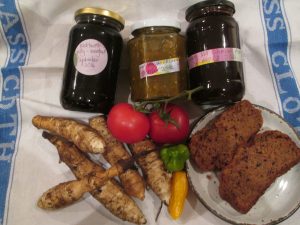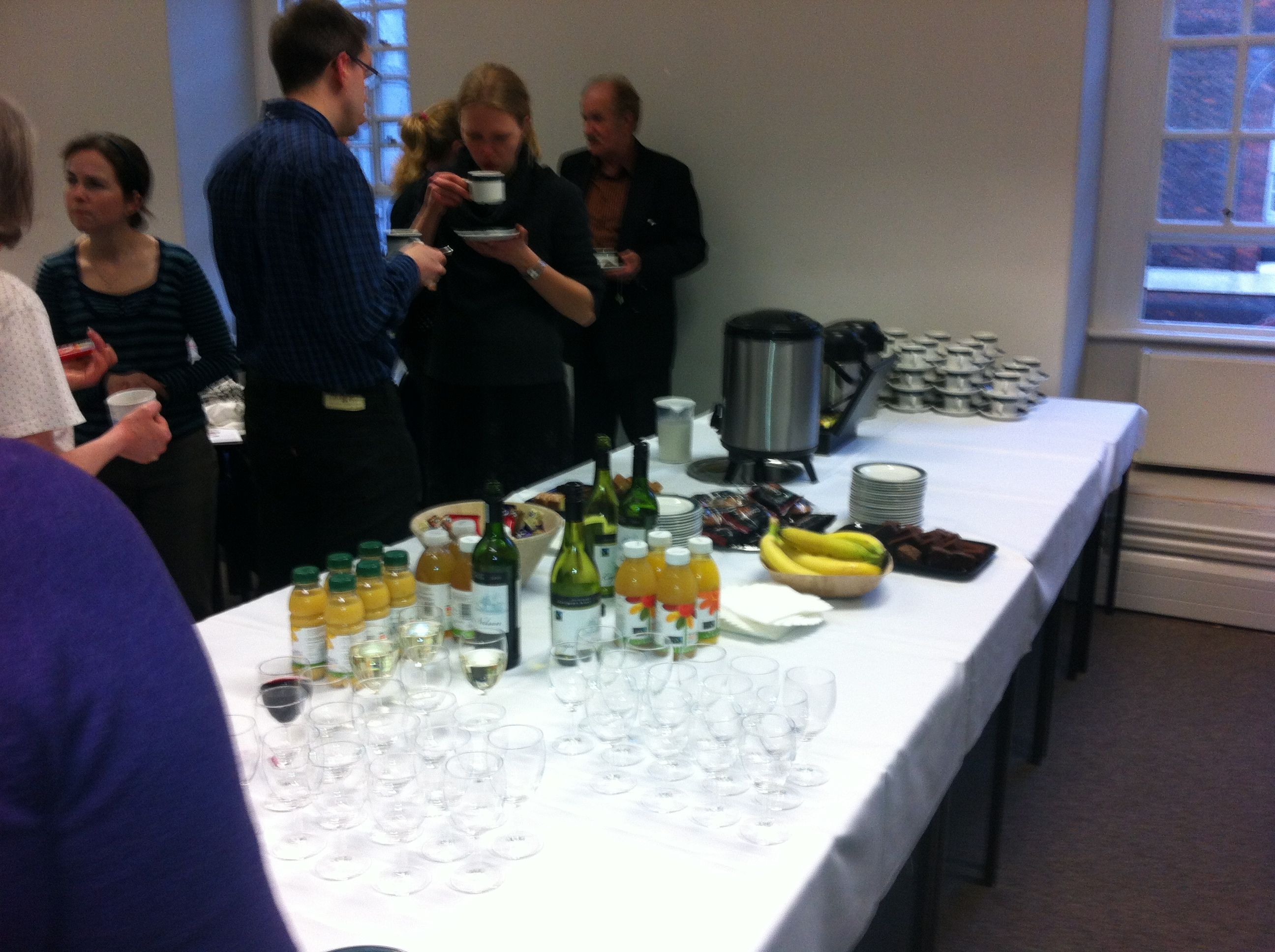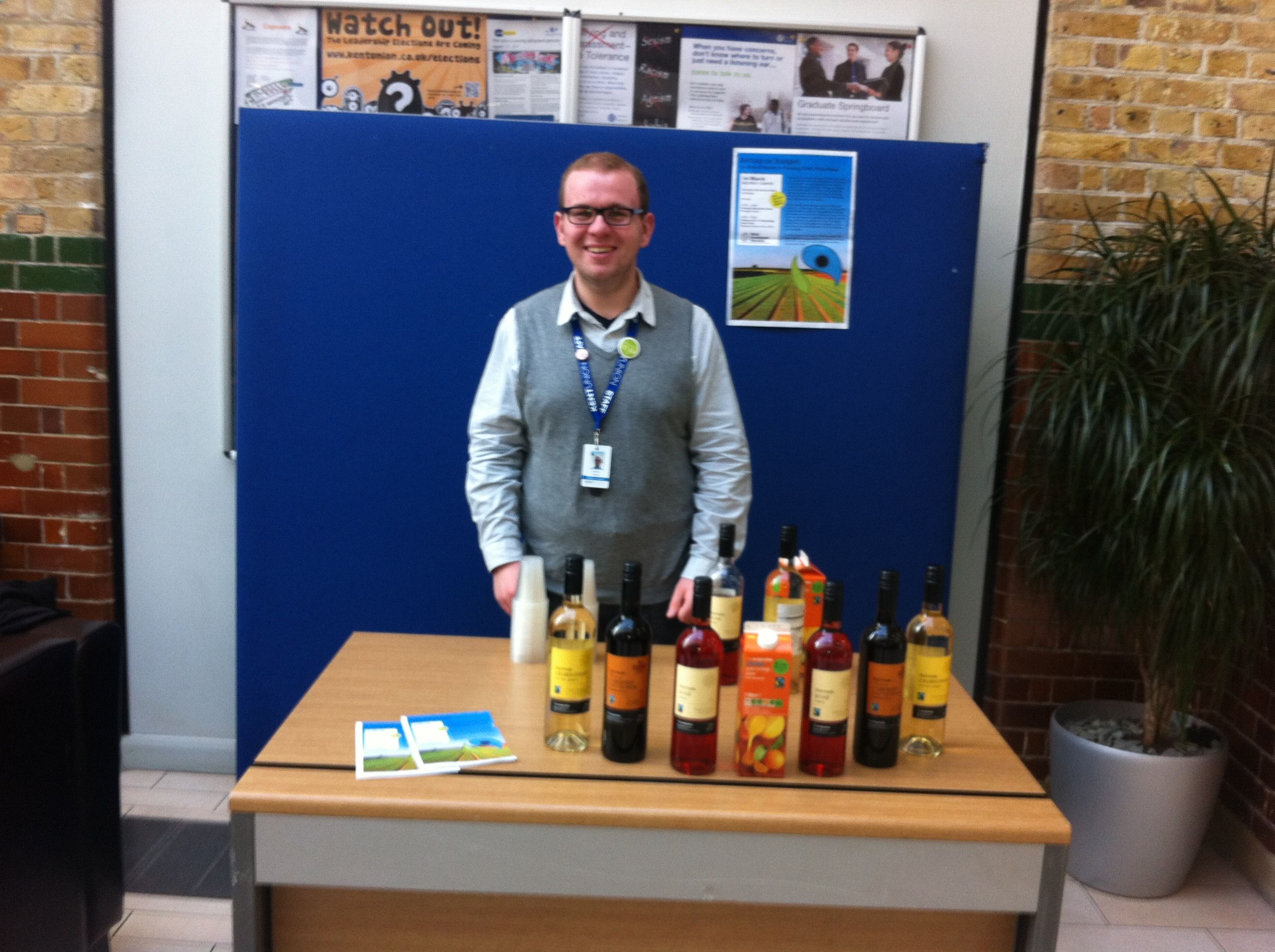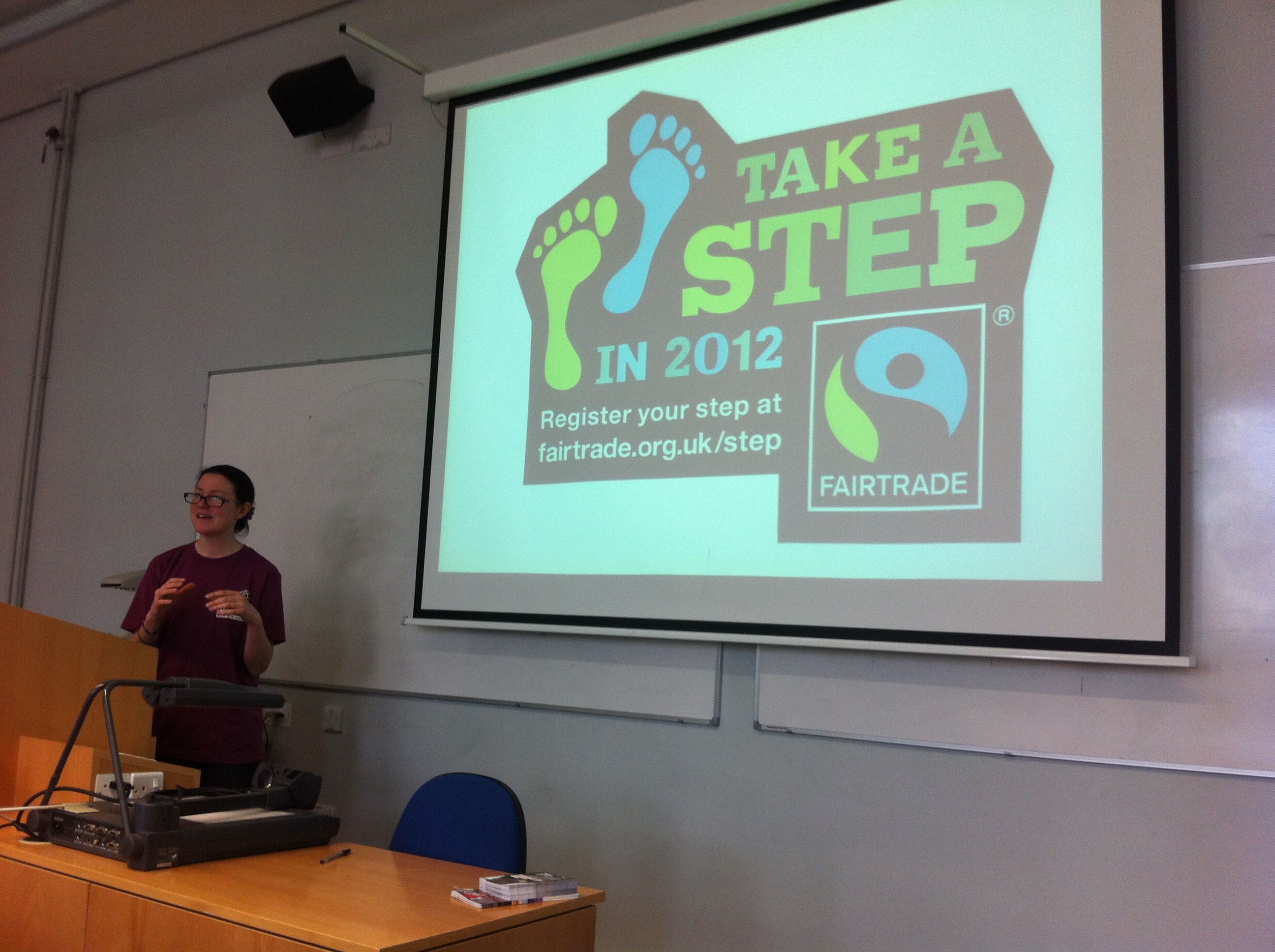As the beautiful Autumn colours begin to fade into the stark grey, white and blues of winter, the gardeners’ task changes from a focus on planting, watering, weeding and harvesting to one of replenishing the soil, picking the last of the harvest and tucking the garden in for the winter.
Besides the harvest in the Edible Garden, the campus and its surrounds contains so many edible plants that just ask to be foraged while the internet is a treasure trove of recipe ideas.
We had a bumper crop of blackberries in August, unusually early this year. On my way into work and at lunchtimes, I picked several pounds near Sparrows Farm and along the park cycle tracks. I took my home made scones, blackberry jelly and cream into work for the Clearing team. Some members had never tasted home-made jelly and all declared it far superior to the bought variety. The advantage of jelly over jam is that all the not-so-perfect fruit bits get strained out. I also used blackberries added to stewed apples and pears, sweetened with honey gathered from the beehives on the campus and sold in the student union shop.
I cooked rhubarb by chopping it into 2-3 cm lengths, spreading the pieces in a baking dish, adding grated ginger and a small amount of water then sprinkling it all with honey or brown sugar before and baking it for about 20 minutes at 180oC.
Tucked away at back of the campus I discovered a lone damson plum tree. These plums are tiny and taking their stones out is a nightmare so I made a batch of damson jelly; just as delicious as the blackberry version and just as nice with scones and cream!
We grew squashes in the garden that made wonderful soup while the courgettes (or zucchinis) were delicious cooked as a main course vegetable. The zucchini cakes I made using a recipe I found online sold like hotcakes at our MacMillan fundraiser during Freshers’ week.
We grew a bumper crop of tomatoes in our polytunnel which are lovely munched straight from the vine, eaten raw with salad or in snacks or cooked with other vegetables spiced with our chilli peppers. I made my first batch of green tomato chutney that I am itching to try but because it needs to mature it will not be ready until Christmas.
We are still picking the last of the rainbow chard and I have enjoyed steaming it or using it as a substitute for spinach in my spinach and brown rice bake – a family favourite from Delia Smith’s Complete Cookery Course book. My most recent experimentation has been making soup from our Jerusalem artichokes. Combined with onions, garlic, celery, carrots and chicken stock it tasted wonderful.
Spending time in the garden allows me time to relax and recharge away from the busy atmosphere of the Enquiry Unit. I have met so many lovely people there that I would never have met otherwise. Cooking and sharing food that I have helped to grow from seed is a wonderfully rewarding experience, and I cannot recommend it more highly.
Below: homemade jams, chutneys and cakes from garden produce.













